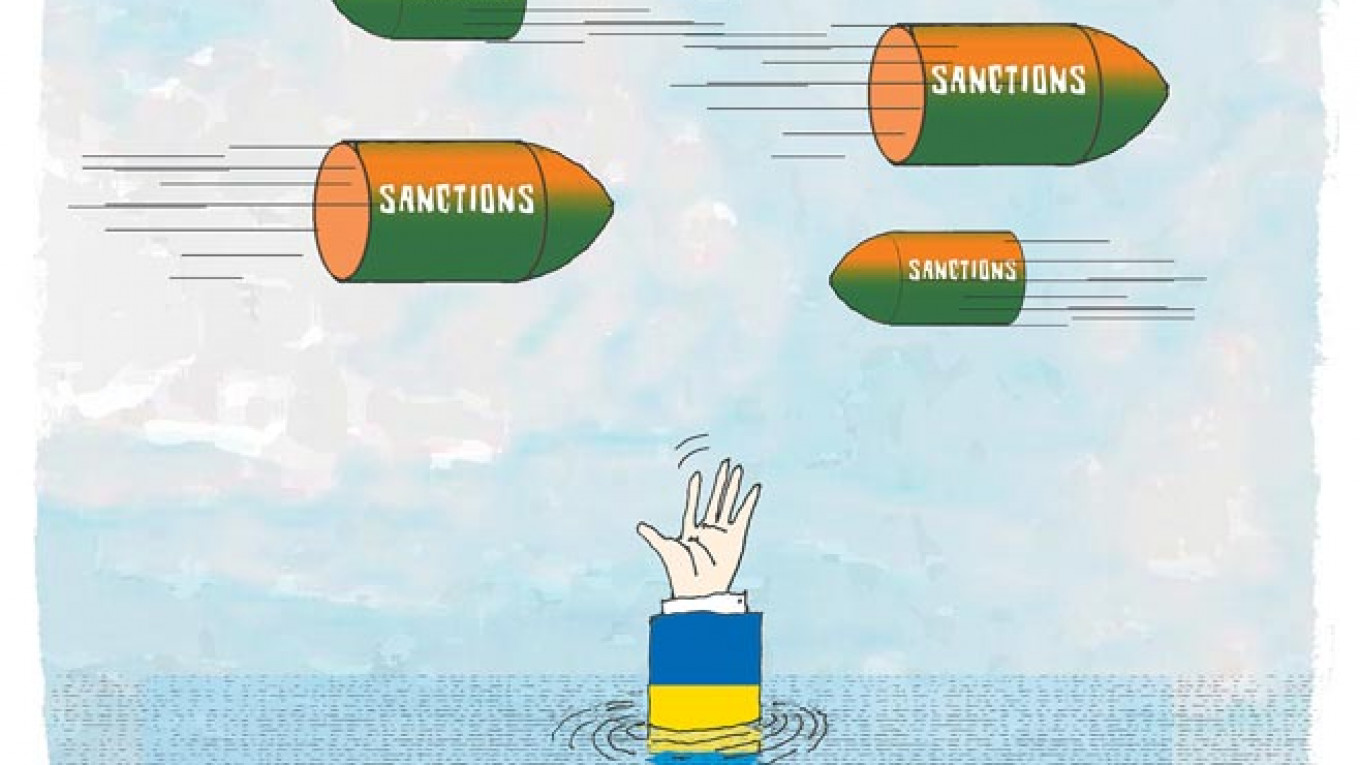These days, you will hardly find a Western politician or a public leader who has not made a statement on Ukraine. All the pluralism of views and opinions notwithstanding, the overwhelming majority of comments boil down to two theses. First, they focus on only one dimension of the multi-dimensional Ukrainian crisis: on the Crimean dimension. Second, out of the broad range of available options and recommendations to the West only one recommendation is discussed in detail: how to punish Russia with sanctions.
Such an approach reveals either a lack of the adequate information about Ukraine or an evident political bias. In any case, this approach can hardly help in understanding the roots and the dynamics of the Ukrainian crisis and can hardly help in working out a realistic solution for the crisis. If the approach is not changed in the nearest future, all of us may have to coexist for a very long period of time with a major hotbed of conflicts and instability in the very center of the European continent.
To reduce the serious and profound conflict in Kiev to "Russia's annexation of Crimea" would be a tragic delusion.
A fair share of blame for the tragic situation should be addressed to the Ukrainian elite — politicians and top businessmen alike. Many of those newly born "patriots" and "Europeans" for more than 20 years pursued only their own personal interests and did nothing at all to build a modern European state. But more important than assigning blame is to get a realistic assessment of the current state of affairs in Ukraine and to define practical steps to resolve the crisis.
To reduce all the problems in Ukraine to the "annexation of Crimea" would be a profound and tragic delusion. The core of the problem is not the new status of Crimea, which is nothing more than a natural consequence of earlier events in Kiev. The core of the problem lies in the disintegrating Ukrainian state, in all the main state institutions being compromised, in the established political leaders being discredited with no universally accepted new public figures available to replace the old faces.
The core of the problem can also be found in the disastrous state of the Ukrainian economy and public finances that brought the country to the brink of bankruptcy. In addition, the corrupt politicians, bureaucrats, oligarchs, the military units and gangs that are accountable to nobody have played a large role in the conflict.
Unfortunately, today Ukraine cannot be regarded as a full-fledged state. To ignore this reality and to focus exclusively on the "Crimean problem" would be disingenuous and hypocritical. This hypocrisy is not going to help Ukraine.
The reality is that Ukraine is not in a position to resolve the crisis without external assistance. Only coordinated actions by Russia and the European Union, together with other committed partners, can rescue Ukraine. It means that we should put aside our disagreements on Crimea and put together a contact group at the level of foreign ministers from Russia, the U.S. and major European powers. The group should be convened urgently with no preconditions. Its sole goal should be decide how to assist Ukraine as soon as possible. We need a plan for immediate economic, social, political and other measures that would prevent Ukraine from sliding into the abyss. Such a plan, when drafted, should be addressed to all responsible political forces in Ukraine ready to work for the salvation of their country
After all, we were able to act together and stop the war in Bosnia and assisted its transition to stability. But this effort did not happen immediately. The cost of delay was about 100,000 lives and more than 2 million refugees. Are we ready to wait until the situation in Ukraine becomes even more desperate and dramatic before we have the courage and the political will to act together once again?
As for Crimea and sanctions against Russia, I believe that to put these matters at the center of the discussion means to find excuses not to assist Ukraine in a practical way, or it is an attempt to cover up egotistic and short-sighted geopolitical interests.
The future of Crimea has been decided. It might be a painful fact for many, but this fact should be accepted. It was not Russia that provoked the crisis in Ukraine. It was not the Kremlin that brought extremist nationalists to power in Kiev and broke into pieces the very delicate and fragile political balance that had been the foundation for the Ukrainian statehood and integrity. The Kremlin had to respond to the will of the overwhelming majority of Crimeans to rejoin Russia. How could Russian leaders act in a different way keeping in mind national interests, historical justice and the deepening Ukrainian crisis?
Of course, every country can decide for itself whether to impose sanctions on another nation or not. Every state can assess the repercussions of the sanctions, including repercussions for its own economic interests. But history tells us that, as a rule, sanctions are not a sign of strength but rather a sign of weakness. Sanctions demonstrate a clear inability to resolve complicated problems through political and diplomatic means.
If the West wants to reconfirm this trivial observation once again, it is easy to do. But will it help Ukraine?
Igor Ivanov, foreign minister from 1998-2004, is the president of the Russian International Affairs Council.
A Message from The Moscow Times:
Dear readers,
We are facing unprecedented challenges. Russia's Prosecutor General's Office has designated The Moscow Times as an "undesirable" organization, criminalizing our work and putting our staff at risk of prosecution. This follows our earlier unjust labeling as a "foreign agent."
These actions are direct attempts to silence independent journalism in Russia. The authorities claim our work "discredits the decisions of the Russian leadership." We see things differently: we strive to provide accurate, unbiased reporting on Russia.
We, the journalists of The Moscow Times, refuse to be silenced. But to continue our work, we need your help.
Your support, no matter how small, makes a world of difference. If you can, please support us monthly starting from just $2. It's quick to set up, and every contribution makes a significant impact.
By supporting The Moscow Times, you're defending open, independent journalism in the face of repression. Thank you for standing with us.
Remind me later.








